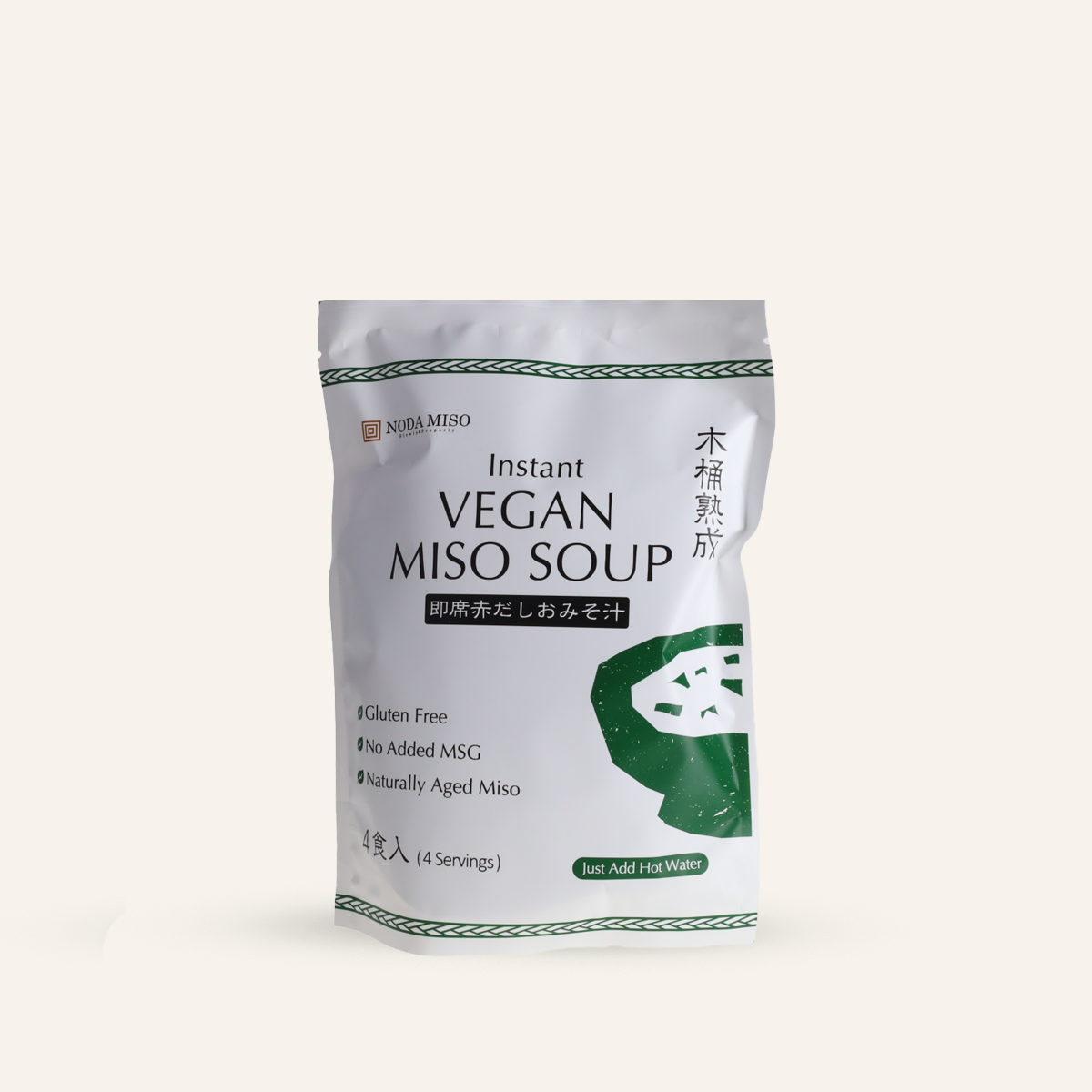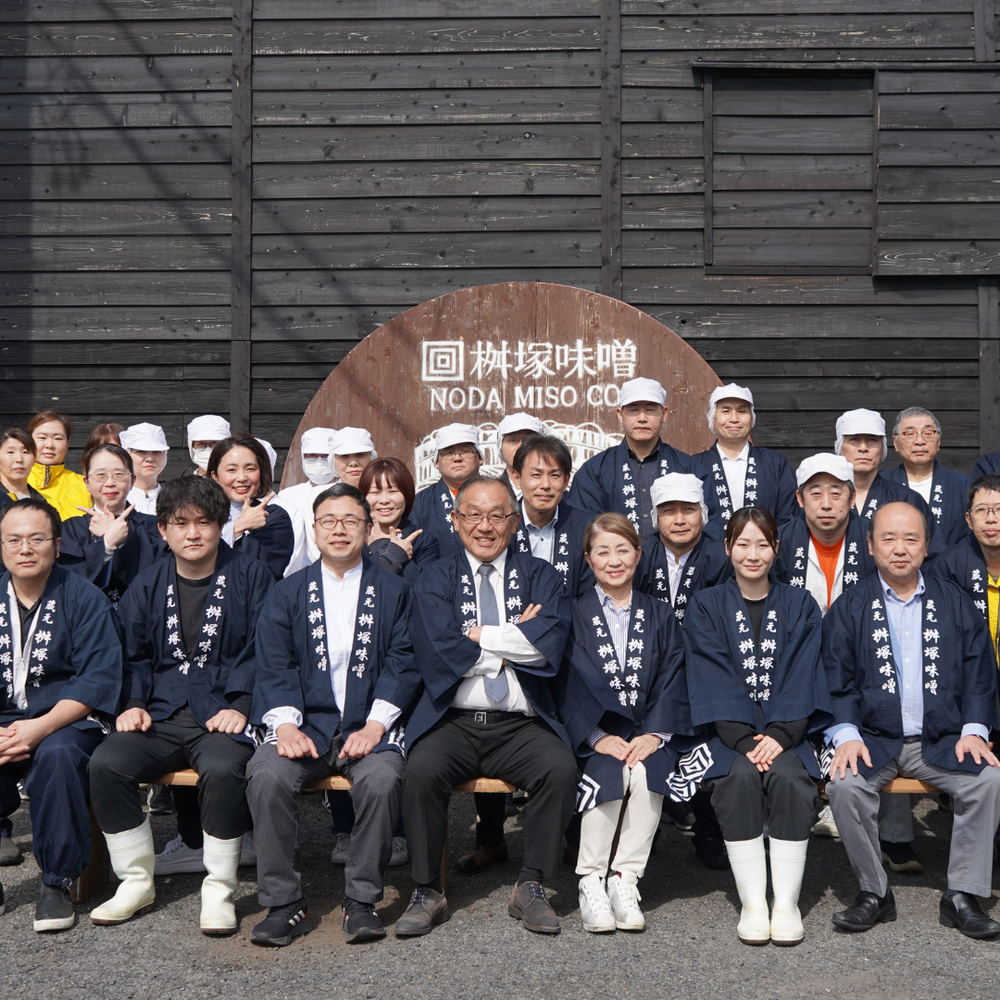Miso
Vegan Instant Red Miso Soup - Serves 4
Vegan Instant Red Miso Soup - Serves 4Ref. {{ sku }}: Ref. 709
In stock
Description
This instant miso soup is made entirely from plant-based ingredients like kombu and is perfectly suited to vegetarian and vegan diets. It comes in two sachets: one containing akadashi red miso, brewed from soybeans slowly matured in cedar barrels for over a year and a half, and the other containing freeze-dried ingredients to add to the soup (spring onions, fried tofu, wakame).
Flavor
A lovely umami of red miso, the spiciness of spring onion and a good taste of fried tofu.
Conservation
Store at room temperature, away from sunlight.
Ingredients & Allergens
Nutritional Values


Noda Miso
For over 80 years, Noda Miso, formerly known as Kuramoto Masuzuka Miso, has produced naturally fermented miso, for more than a year and a half, in cedar wood barrels. The company grows its own koji in a dedicated fermentation room to produce even higher quality miso. The company prides itself on maintaining a certain harmony with nature, respecting the slow symbiosis of foods during fermentation, without speeding up the process. This relationship with nature and the climate is essential in Aichi. In fact, to produce Hatcho Miso, artisans had to adapt to the region’s humidity to succeed. In addition to its commitment to natural fermentation that isn’t sped up with stainless steel tanks or additives like synthetic MSG, two guiding principles shape Noda Miso’s production: dietary education, and local production for local consumption.
Excellent !





